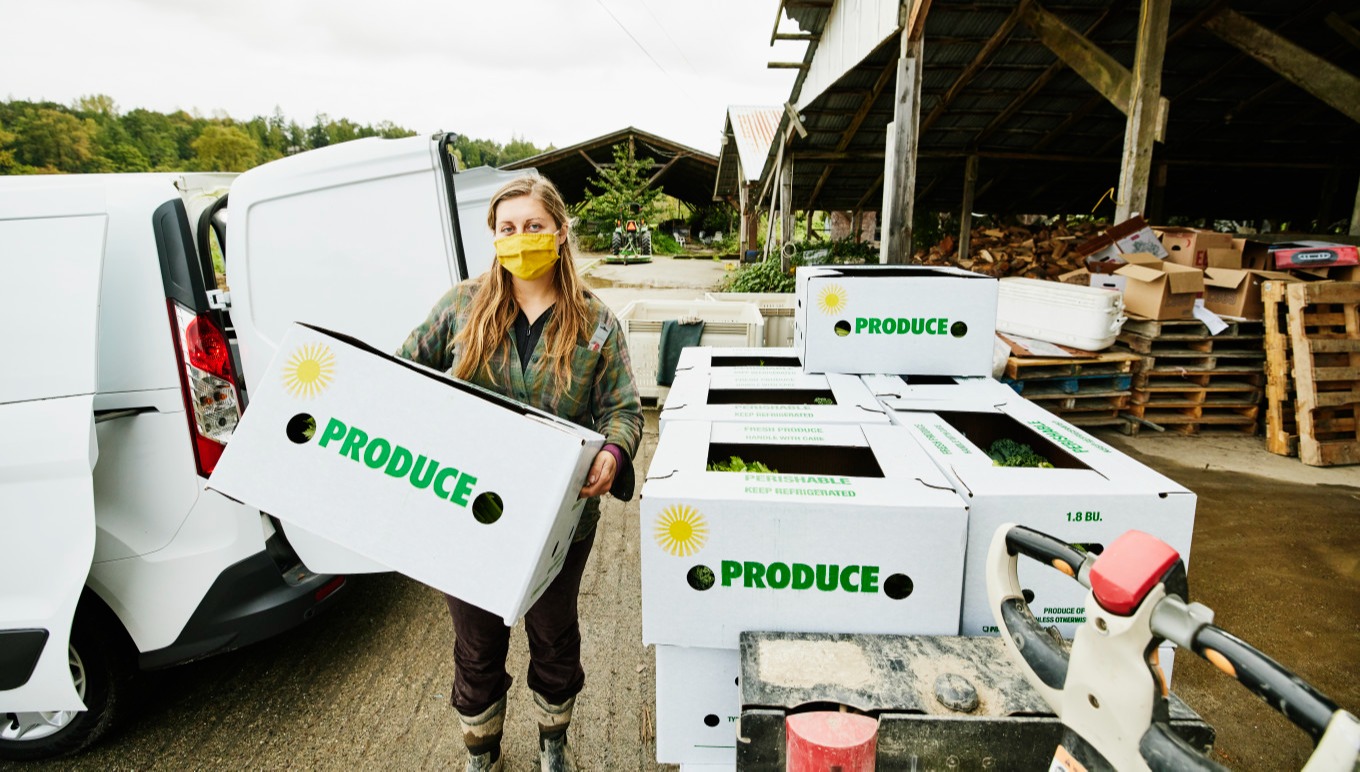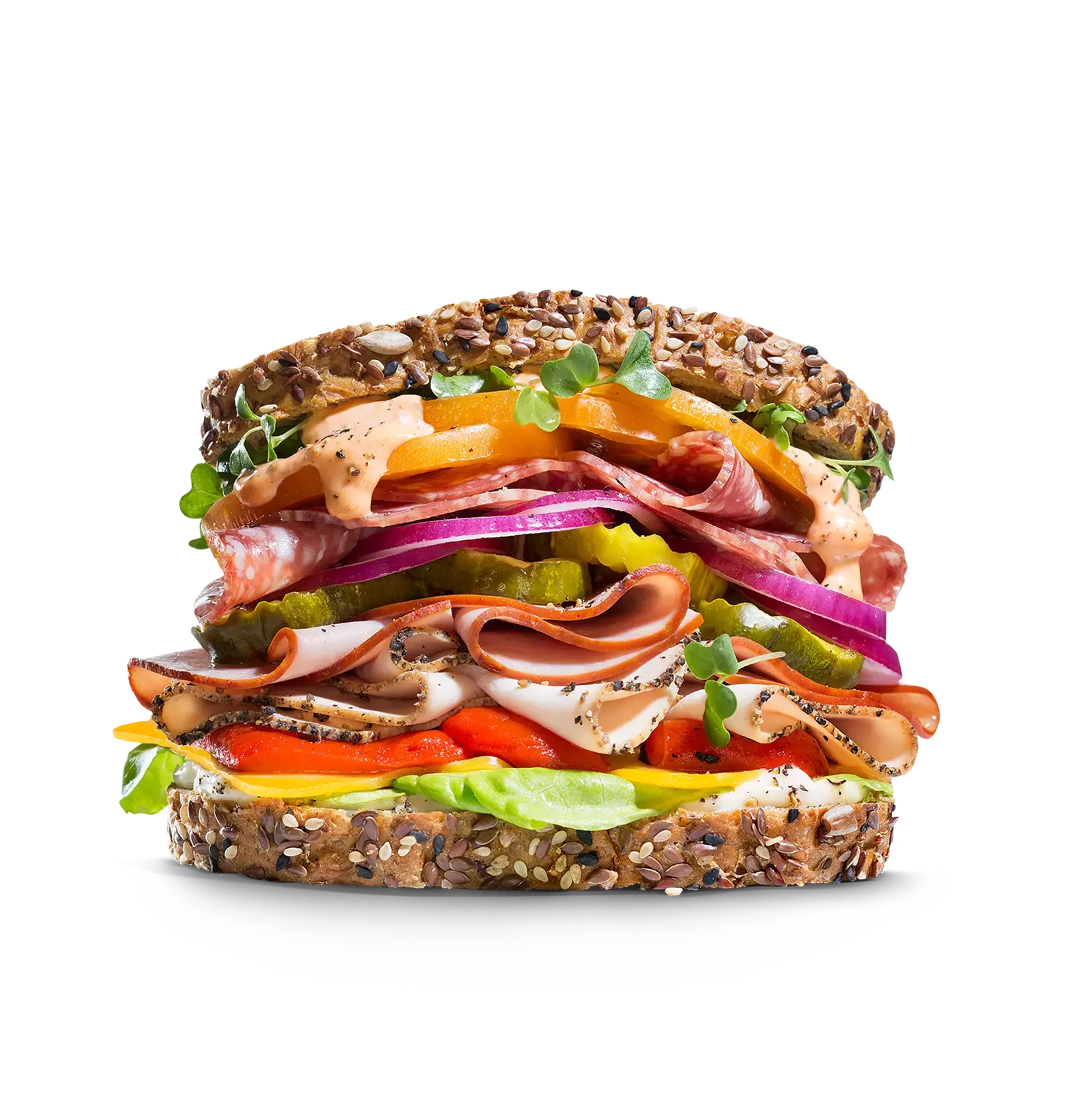How Your Food Business Can Overcome Supply Chain Challenges and Proactively Manage Disruptions
How Your Food Business Can Overcome Supply Chain Challenges and Proactively Manage Disruptions
How Your Food Business Can Overcome Supply Chain Challenges and Proactively Manage Disruptions

The COVID-19 pandemic exposed the lack of flexibility in the global food supply chain, causing a host of disruptions in almost every country in the world. In order to overcome these challenges, enterprise-level food businesses have had to implement and review their processes to react to rapidly fluctuating levels of supply and demand.
But it’s not all about COVID-19; large food businesses face a range of day-to-day supply chain challenges that require constant, proactive management. The modern food industry has supply chains that are growing larger and more splintered, and this presents a unique set of issues for food and beverage enterprises. Read on to learn how innovative companies in this sector are approaching the biggest supply chain challenges using enterprise resource planning (ERP) solutions.
Supply Chain Challenges Facing Large Food Enterprises
Global food and beverage supply chains pose a number of challenges for large businesses, but most stem from how fragmented they are. Food enterprises must navigate a host of geographical, regulatory and demand-based issues in order to keep production and sales schedules on track.
Many companies are not able to achieve a holistic overview of their operations and the wider supply chain. This means that when problems arise, they are often caught out and are unable to respond quickly enough to prevent loss of revenue.
Cross-Border Confusion
With most enterprise-level food companies operating across multiple borders, it’s vital to ensure real-time, seamless communication between hubs in each country. Unfortunately, it’s not uncommon for technology stacks to be fragmented across geographical lines, with systems varying from site to site. The result of this is siloed or duplicated data and serious communication barriers leading to inefficiency and delays. In addition, the discrepancy in food regulations from territory to territory brings its own challenges, with modified versions of products often required for specific markets.
The Aftermath of COVID-19
Although many countries are now returning to a more normal pace and scope of operations, the food supply chain remains vastly exposed to significant risks. All levels of the supply chain continue to be susceptible to shocks, making enterprise-level companies particularly vulnerable. The first phase of the pandemic was characterized by dramatic changes in demand as consumers shifted away from foodservice outlets and towards retail in the face of lockdowns and stay-at-home orders.
But while demand is now much more stable and returning towards pre-pandemic patterns, concerns remain around food production, processing, manufacturing and transportation. Rising levels of coronavirus in reopened countries like the U.S. and the UK are leading to thousands of key supply chain workers being forced into isolation.
From truck drivers to warehouse workers, dwindling staff levels are starting to cause major disruption for food and beverage companies. For larger companies relying on more and more supply chain branches vulnerable to delays, every problem is compounded.
Leveraging Food ERP to Overcome Supply Chain Challenges
A food and beverage industry-tailored ERP helps organizations like yours address both the challenge of fluctuating demand and unpredictable disruption in the supply chain. The real-time visibility food ERP provides enables you to better manage supply chains with respect to inventory, production and future disruptions.
COVID-19 has prompted large food organizations to move towards unified, food-specific ERP solutions because they’ve realized generic systems leave them open to unacceptable levels of uncertainty. Full digital transformation isn’t a quick process, but an ERP implementation can quickly help you to significantly improve your response to supply chain disruptions.
Recalls
Product recalls can be extremely damaging to food and beverage enterprises like yours. One unsafe ingredient or a simple error like cross-contamination between ingredients could be disastrous for a manufacturer—in terms of both financial and reputational costs. For those operating within more complex supply chains, identifying the source of the problem, along with all affected batches, and authorizing a recall can be a lengthy process. When every hour counts, this simply isn’t good enough.
Specialist food and beverage ERP solutions have advanced trace and recall functionality. This means they can almost instantly identify where raw materials and packaging came from and where finalized products were shipped, enabling you to “press the button” on a recall quickly and with confidence. This isn’t just effective for single supply lines, as food and beverage ERP can identify all other recipes where a contaminated ingredient was used, allowing these product lines to be recalled too before a food safety breach is reported.
Compliance
The tightening of food and beverage industry regulations has increased the number of rules that your organization must follow to prove the safety and quality of your food. Larger manufacturers are feeling the impact of these changes most keenly, given the wide range of product lines they produce and the number of different territories they operate in.
Due to this, food industry regulatory compliance is a significant burden on the industry. Many food companies are still overly reliant on manual records and store data on multiple different systems. Not only does manually processing the data cost time and money, it also increases the chance of error and makes it nearly impossible to obtain full audit trails.
A food and beverage ERP platform brings all operational activities onto one system and allows you to seamlessly integrate all required compliance information, making food safety and other regulations a core consideration in the manufacturing process. It also allows you to demonstrate compliance whenever required by recording full audit chains.
Proactively Manage These Challenges with Aptean Food & Beverage ERP
Due to the nature of food and beverage supply chains, effective management is especially hard to achieve for large businesses that don’t have the right tools. As your organization identifies new opportunities and branches out into new markets, the danger of falling foul of splintered and complex supply chains only grows.
ERP tailored to the food industry gives enterprise-level food businesses the control and visibility they need to navigate any issues like energy shortages, and the tools required to quickly respond when things go wrong. Our unified food and beverage solution, Aptean Food & Beverage ERP, has the advanced features and capabilities your business needs to stay one step ahead of the competition.
To learn how Aptean can safeguard your business against the increasingly unpredictable nature of modern food and beverage supply chains, contact our team of food and beverage industry experts today.
¿Todo listo para transformar tu negocio?
Tenemos las soluciones ERP especializadas que necesitas para superar los desafíos de tu sector.



 Jack Payne | Vice President, Product Management & Solutions Consulting
Jack Payne | Vice President, Product Management & Solutions Consulting